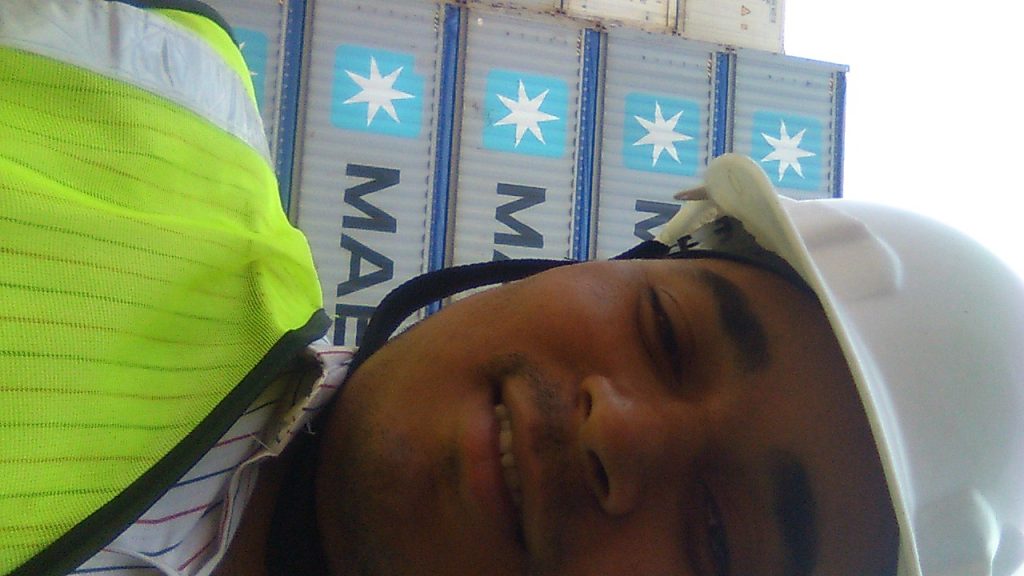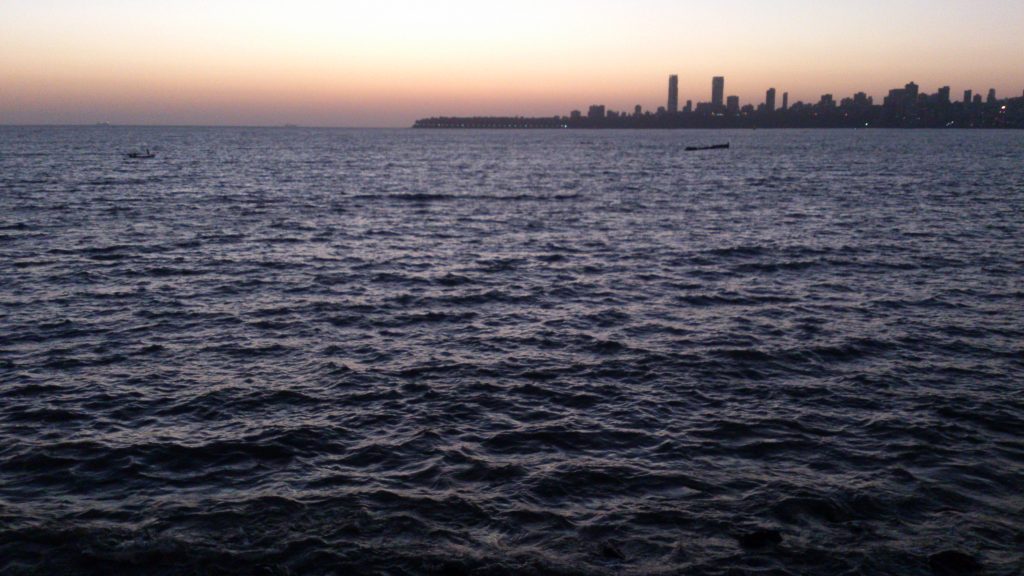That’s when we learnt for the first time -although, it ought to have been utterly common-sensical to begin with- that cargo ships, like everything else in our not-so-ideal world, get late too. We were to wait for another four hours before our journey to Jawaharlal Nehru Port Trust (JNPT) will begin. And in another five hours, we’ll be sleeping through the lecture on safety instructions -reminiscent of our post-lunch lectures in IIMs- before going on the deck of a cargo ship, at APMT’s office at JNPT. But in another six hours, all four of us will be revelling on Maersk Line’s Sealand New York, silently nodding to each other how every painful process of coming here has been totally worth it.
Totally worth it – that is exactly how my two month stint as summer trainee at Maersk Line’s Mumbai office can be summarized as. It wasn’t a bed of roses throughout, but then, it had its fair share of ups and downs, which made for a far enriching experience.
Right from the day it didn’t start to the day it did finish, it had been one of those kind of experiences which didn’t seems to get over when you’re actually experiencing it, but when it does, you do miss it fondly.
Maersk Line is world’s largest shipping liner, with container shipping being its core business. Maersk Line owns cargo ships and containers and -through other Maersk Group companies- almost everything in between. My summer project involved enhancing customer experience for priority customers of Maersk Line at their container yard, which is owned by APM Terminals, another Maersk Group company. So the project had me travelling all through the length and breadth of Mumbai meeting pre-identified stakeholders and getting their opinions on how Maersk Line can make their overall business experience (at the container yard) smoother.
The most challenging part of my internship was -which most of my colleagues at Maersk and my friends at IIMs would agree- getting people’s time. Truck drivers were the most important stakeholders of my project, and I still don’t know how I got them talking. That I still got them talking, and not just a couple of them, but precisely 115 of them is something which I feel most proud about. It was challenging on account of two reasons – first, they were in awe of Maersk brand, which made them respect and fear me a little. Hence, they weren’t saying what they really wanted to say, instead, they told me things which they thought I’d want to hear. And don’t even try suggesting me why didn’t I mention to them my IIM brand, or that I’m a summer trainee with Maersk. It wasn’t until I smoked beedis with them, along with the famous truck driver’s chai that they really opened up to me. (No, I’m not promoting smoking in any which way.) The second reason for it being a challenge was that most of the Truck Drivers coming to pick-up/drop-off containers at Nhava Sheva yard region were Gujaratis & Marathis, with little knowledge of Hindi, and I only know Hindi and English. You see the disconnect? Well, nothing could be done about it, except that now I do have something similar to a working knowledge of both of these languages.
The most enjoyable part of my summer training was meeting the next most important stakeholders, which were the customers of Maersk Line. I don’t know whether I can disclose their names here, but suffice is to say that every major MNC which visits any b-school of importance in India for placements is their customer. Add to that, out of 10,000 freight forwarders operating in Mumbai area, around 7,000 are regular customers of Maersk Line. Spending an entire day at customers’ offices, understanding their businesses, realizing how important part Maersk Line plays in their overall value chain and how does that impact our customer’s customers was nothing short of an eye-opener. With reasonable confidence -and a little exaggeration- I can say that I didn’t learn this much in my one year at the business school as much as I did learn in those two weeks of meeting these customers. The thing which I liked the most was the fact that I didn’t even have to mention that I’m from IIM. Saying that I’m from Maersk was a strong enough reason for them to let me in, and take out time from their own schedule. I enjoyed the respect which I got from the senior management of all these MNCs. I mean, how often does the head of customer service takes out time to speak to a vendor’s summer trainee?
My greatest learning from this internship was the importance of adaptability. I was standing under the shade of tree in sweltering heat on a roadside tea stall on Bombay-Goa highway one day, and was sipping tea in an ultra-high end conference room the next day. What I also learnt was that the major portion of most kind of projects is getting data, and getting day requires a lot of relationship building. Be it the truckers, or executives at the customers’ offices or even people in my own office – one thing which was common across all of them was getting the data which I wanted and not the data which they thought I wanted. The importance of effective communication was realized agonizingly.
A lot has been said about Mumbai, and there is nothing more which I can add to it. This April was the first time I saw Mumbai, which had almost become a myth for me. To see something like Mumbai for the first time when you’re already 26 is an experience which is surreal. The city does give you a high. And after seeing a city breathing sea, I understood what Marquez had been meaning all this while.
“Wisdom comes to us when it can no longer do any good.”
- Gabriel García Márquez, Love in the Time of Cholera




















Comments